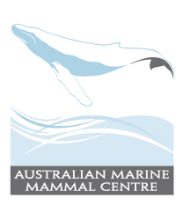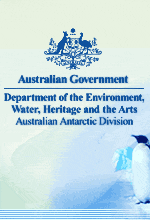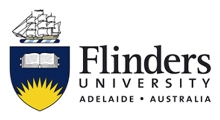Dolphins and toothed whales are long-live mammals that show a wide range of social structures, display large variation in life history traits, and inhabit numerous marine, estuarine and freshwater environments. Some species exhibit extremely complex social groupings matched only by other long-lived, large-brained mammals, such as primates and elephants. This research program is using behavioural, ecological and genetic data to investigate the interplay of ecological and intrinsic factors on the evolution of mammalian social systems in aquatic environments. Study species include bottlenose dolphins, common dolphins and sperm whales.
Program coordinator: Dr Luciana Möller
Investigators and collaborators: Dr Joanna Wiszniewski, Prof Luciano Beheregaray, Prof Rob Harcourt, Dr Kerstin Bilgmann, Dr Guido Parra, Ana Amaral, Catherine Attard, Nikki Zanardo.
Select Publications
– Möller LM (2012). Sociogenetic structure, kin associations and bonding in delphinids. Molecular Ecology doi: 10.1111/j.1365-294X.2011.05405.x.
– Wiszniewski J, Beheregaray L, Corrigan S, Möller LM (2011). Male reproductive success increases with alliance size in a population of Indo-Pacific bottlenose dolphins (Tursiops aduncus). Journal of Animal Ecology DOI: 10.1111/j.1365-2656.2011.01910.x).
– Wiszniewski J, Brown C, Möller LM (in press). Complex patterns of male alliance formation in a dolphin social network. Journal of Mammalogy.
– Amaral AR, Möller LM, Beheregaray LB, Coelho MM. Evolution of two reproductive proteins, ZP3 and PKDREJ, in Cetaceans (2011). Journal of Heredity 102: 275-282.
– Wiszniewski J, Lusseau D, Möller LM. (2010) Female bisexual kinship ties maintain social cohesion in dolphin network. Animal Behaviour 80: 895-904.
– Attard C, Beheregaray LB, Jenner C, Gill P, Jenner M, Morrice M, Bannister J, LeDuc R, Möller LM. (2010) Genetic diversity and structure of blue whales (Balaenoptera musculus) in Australian feeding aggregations. Conservation Genetics 11: 2437-2441.
– Wiszniewski J, Möller LM, Allen SJ, Beheregaray LB. (2010) Environmental and social influences on the genetic structure of bottlenose dolphins (Tursiops aduncus) in Southeastern Australia. Conservation Genetics 11: 1405-1419.
– Amaral AR, Silva MC, Möller LM, Beheregaray LB, Coelho MM (2010) Anonymous nuclear markers for cetacean species. Conservation Genetics 11: 1143-1146.
– Wiszniewski J, Allen SJ, Möller LM (2009). Social cohesion in a hierarchically structured embayment population of Indo-Pacific bottlenose dolphins. Animal Behaviour 77: 1449-1457.
– Möller L.M., Harcourt R.G. (2008) Shared reproductive state enhances female associations in the Indo-Pacific Bottlenose Dolphin Tursiops aduncus. Research Letters in Ecology doi: 10.1155/2008/498390.
– Möller, L.M.; S.J. Allen; L.B. Beheregaray and R.G. Harcourt (2006). Association patterns and kinship in female Indo-Pacific bottlenose dolphins (Tursiops aduncus) of southeastern Australia. Behavioural Ecology and Sociobiology 61: 109-117
– Möller, L.M. and L.B. Beheregaray (2004). Genetic evidence for sex-biased dispersal in resident bottlenose dolphins (Tursiops aduncus). Molecular Ecology 13: 1607-1612
– Möller, L.M.; S.J. Allen and R.G. Harcourt (2002). Group characteristics, site fidelity and abundance of bottlenose dolphins (Tursiops aduncus) in Jervis Bay and Port Stephens, southeastern Australia. Australian Mammalogy 24: 11-21
– Möller, L.M.; L.B. Beheregaray; R.G. Harcourt and M. Krützen (2001). Alliance membership and kinship in wild male bottlenose dolphins (Tursiops aduncus) of southeastern Australia. Proceedings of the Royal Society of London Series B 268: 1941-1947.



